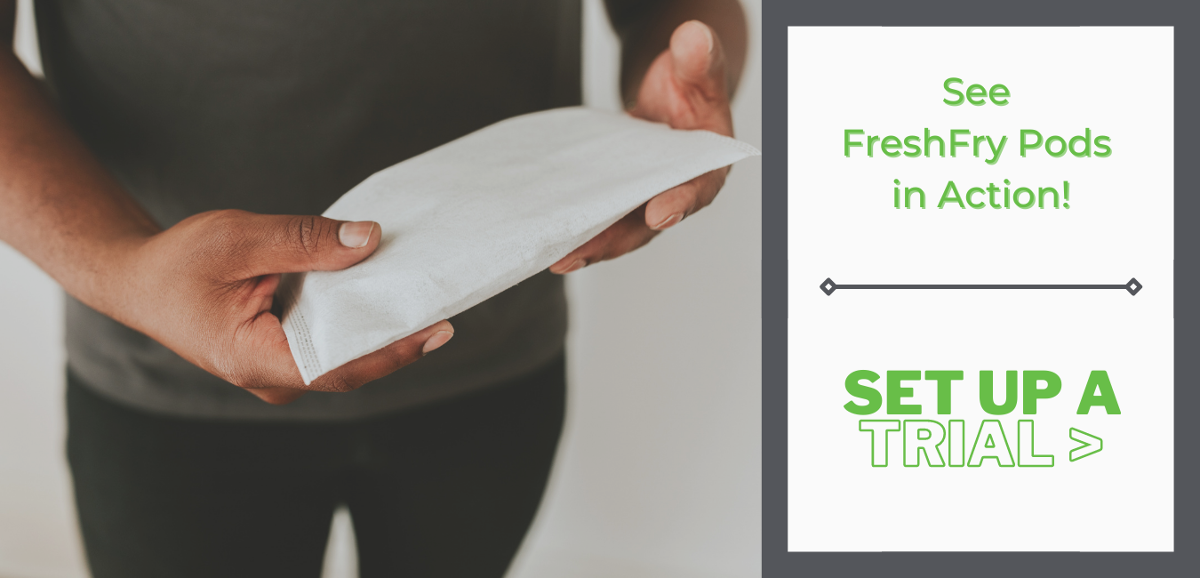Here are the Best Ways to Improve Oil Filtration Practices with Employee Compliance
Filtering fryer oil at the end of a night shift can be one of the most arduous closing tasks. So much so, that employees often ignore it completely. If a restaurant doesn't have a way to hold their employees accountable to this task, it will likely not be completed unless they're being watched. Even then, they may not go through all of the proper steps once their manager isn't looking. This can lead to oil life and quality degrading faster - costing your restaurant more money than it should. Here's how to improve employee compliance with oil filtration practices.

Training
Proper training is the most important piece of improving employee compliance. If employees aren't properly trained on how to filter fryer oil, then they can't be expected to do it correctly. If your employees seem to be struggling with best practices, it's time to have a team meeting to retrain them on the necessary steps.
Sometimes, even with proper training, oil filtration can still be too complicated for some employees to grasp. Simplifying the process is the best way to improve compliance. The simplest and most effective way to filter frying oil is to use FreshFry Pods. There are very few steps involved with the process, so employees can grasp them with ease.
- At the end of the night shift, drop a Pod into each fryer while the oil is still hot.
- Leave the Pod overnight to absorb impurities.
- In the morning, warm up the oil and take the Pod out of the fryer.
- Squeeze out excess oil, and discard the Pod into the trash.
It's that simple! No more draining, using filter paper, or risking oil spills and splatter. Pods do all of the heavy lifting for you - and they cut down on closing time chores because employees don't have to wait around for them to finish filtering.
Accountability
To achieve higher levels of employee compliance, it's important to have a system in place to hold employees accountable. When using a powder to filter fryer oil, the powder dissolves and is invisible to the eye. There's no way for managers or morning shift employees to tell if the oil was properly filtered.
With FreshFry Pods, however, the evidence is clear. Managers and morning shift employees can clearly see if a Pod has been used to filter the oil, because it's left in the fryer overnight. If there are no Pods in the fryers, then you know that the oil hasn't been filtered - which allows for management to reiterate that a Pod must be used and hold their employees accountable.
We also have a resource for our clients called "FryerEye." It's a system that measures Pod compliance each night. With this software, we've seen compliance increase dramatically to 80% and above.
Safety
One reason why your employees may not be compliant with oil filtration practices is because of inherent safety hazards. If your employees have to move, drain, or clean fryer vats hands-on, they may be afraid of getting burned by hot oil spatter - especially if it's happened to them before. Removing safety hazards is a key way to improve employee compliance with oil filtration practices.
FreshFry Pods remove the risk of oil spatter and spills, because you never have to move the oil. The only time employees ever touch the oil is when its warm to squeeze out excess oil from the Pods - but they never to risk touching or being touched by hot oil during filtration.
Simplicity
At the end of a long, hard shift of work, it's no surprise that employees would rather do all of the easy closing chores vs the labor intensive ones. Simplifying your oil filtration process naturally improves employee compliance. Instead of having to go through the many steps of draining the oil, using powder and filtration paper, cleaning out the vats by hand, and waiting 7 minutes to put the oil back into the fryer, it's so much easier to simply drop Pods into the fryer vats.
If you're ready to improve your employee compliance with FreshFry Pods, click here to grab a case of Pods to try at your store, or click below to talk to one of our team members about setting up a trial.




